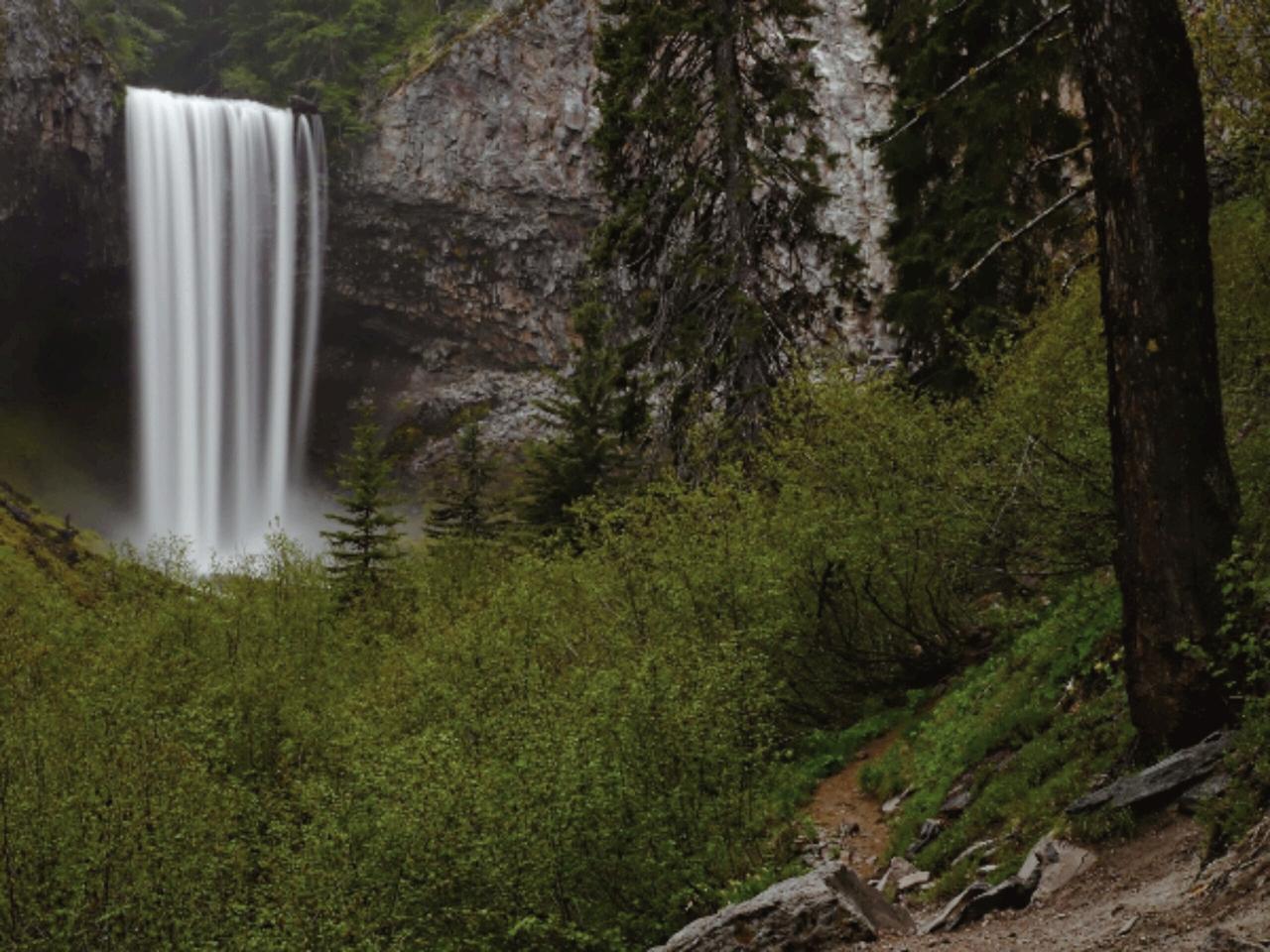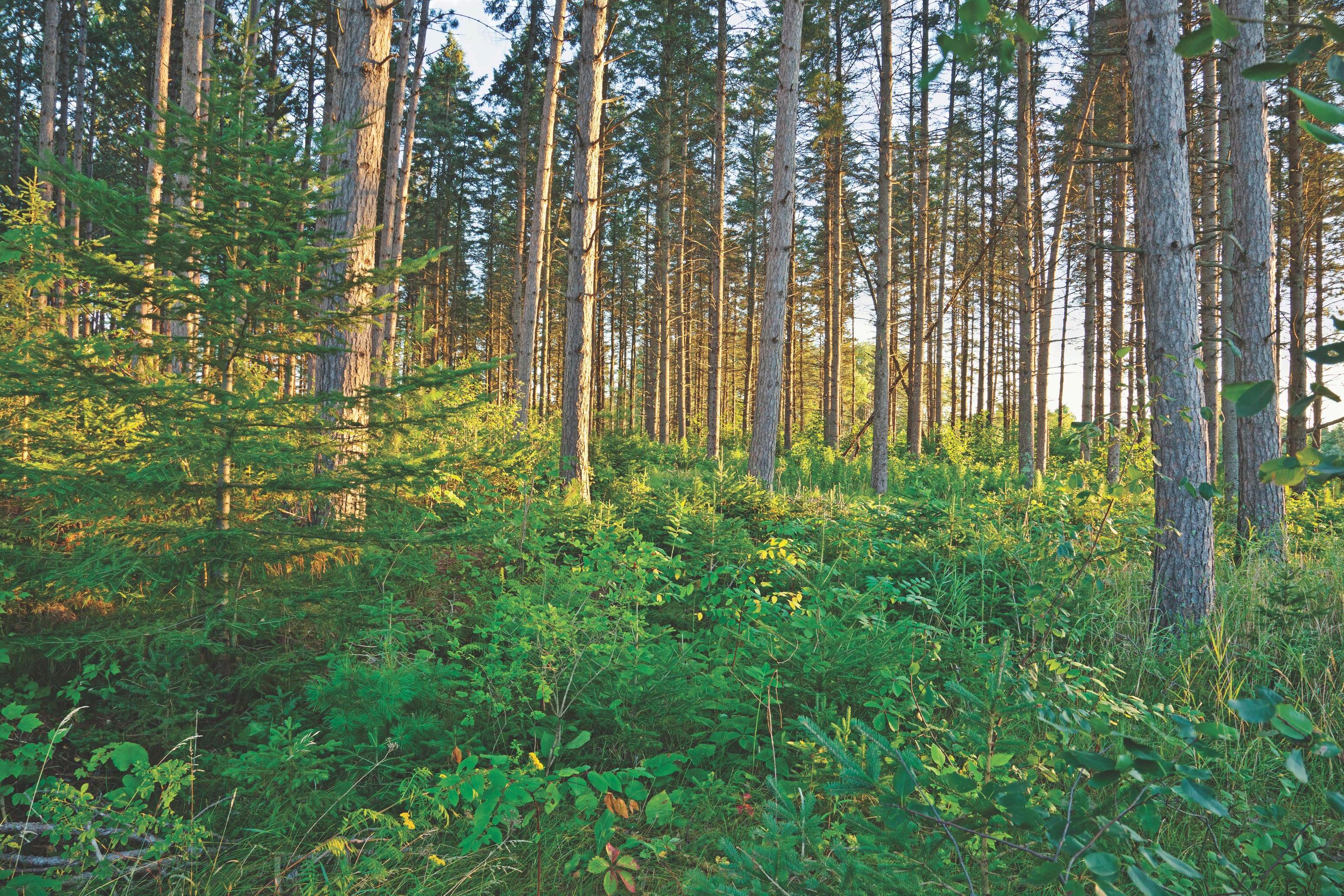

WESTERN FORESTRY & CONSERVATION ASSOCIATION
CELEBRATING 115 YEARS OF HIGH-QUALITY CONTINUING
EDUCATION FOR THE FORESTRY PROFESSIONAL

PAGE1 DIRECTOR’SNOTE
PAGE2 ABOUTWFCA
PAGE3 CELEBRATING115YEARS
PAGE5 OURTIMELINE
PAGE7 ANNUALEVENTS
PAGE11 CONFERENCEMANAGEMENT
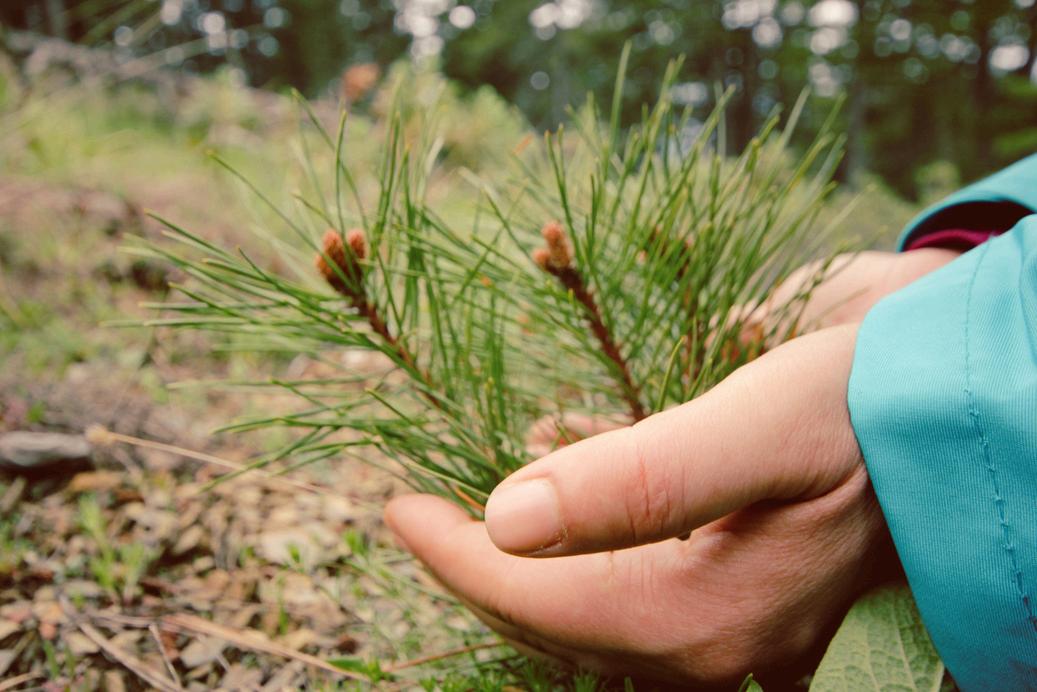
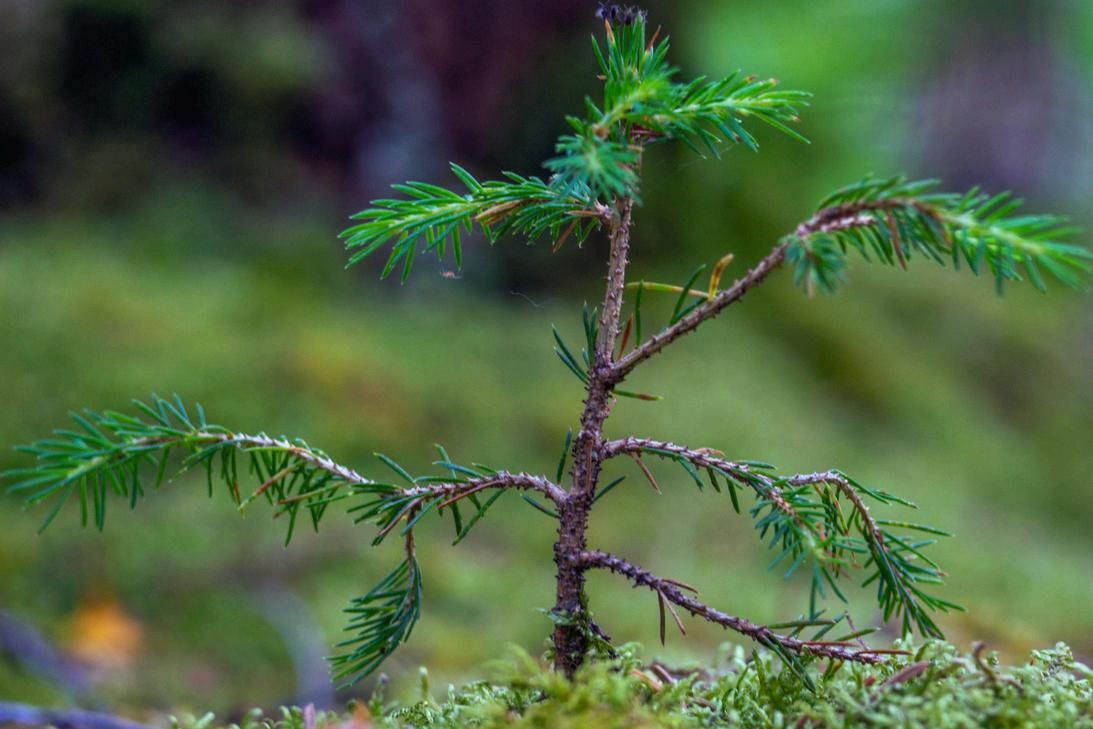
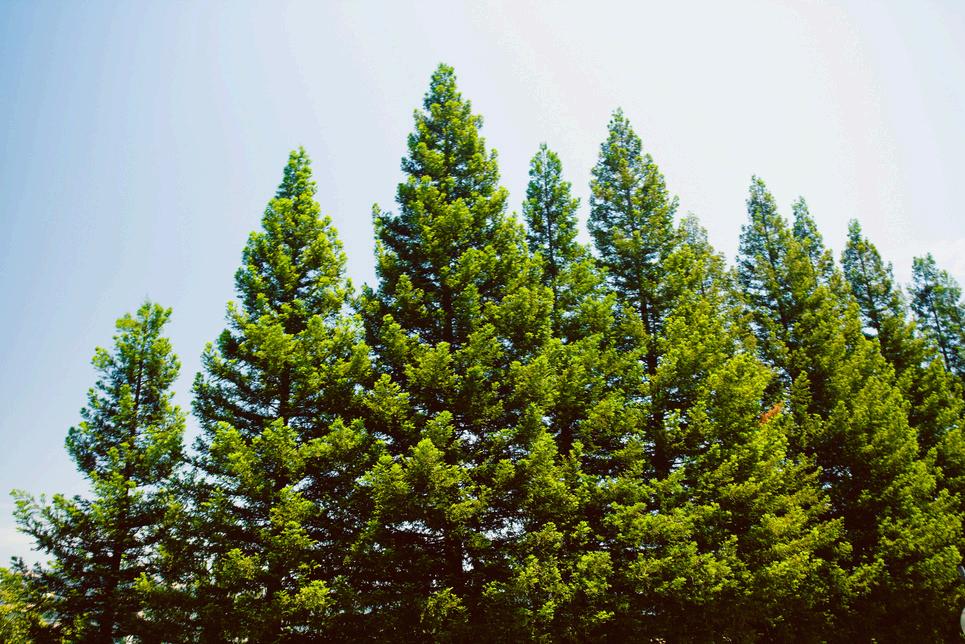
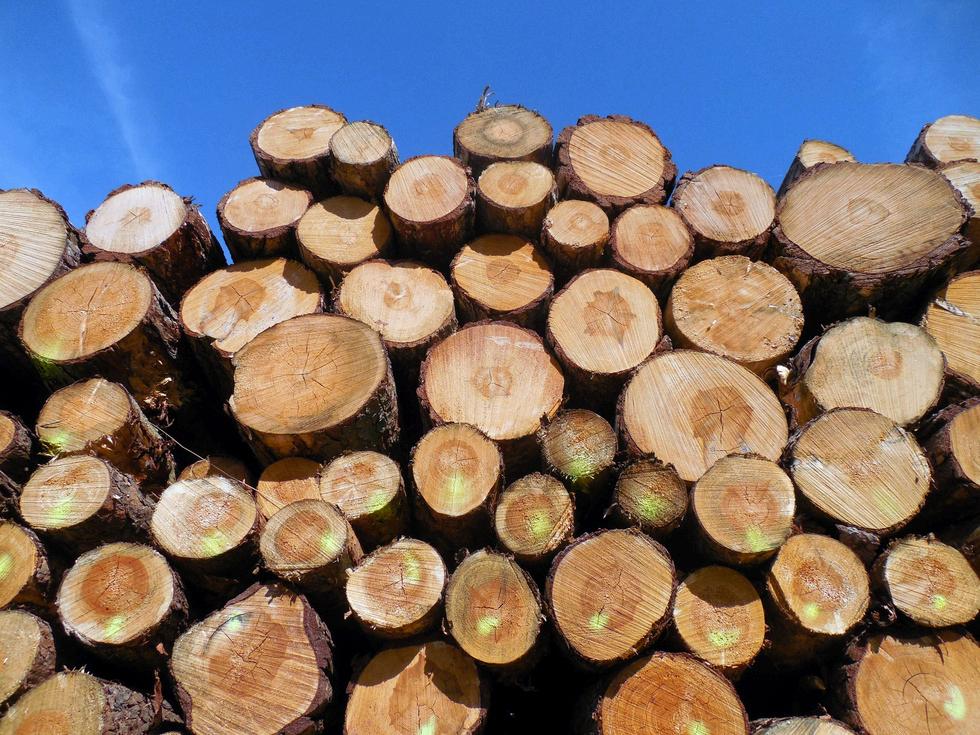
Director‘sNote
Dear Reader,
In 1909, a group of forestry and timber professionals came together to promote sound management and resource protection throughout the western region. Since then, Western Forestry & Conservation Association has been connecting loggers, foresters, and scientists with the education and training they need to be stewards of our forests for the benefit of all.
While wildfire continues to be the professional challenge it has always been, in the 21st century we are also faced with several new obstacles that our founders could have never foreseen: the declining quality of technical education in our universities, a silver tsunami as baby boomers age out of the workforce, and a lack of understanding by the general public of the ecological and economic importance of working timberlands.
In my first year at the helm, I have had the privilege of seeing firsthand how WFCA is a vital connecting force among our forestry community. I could not be prouder to continue our work in bringing people and groups together to provide professional trainings, share knowledge, and address these modern challenges.
As I look to foster a resilient organization that respects the legacy of past directors while meeting the needs of the present, you may see that things look a little different Public-facing engagement needs to be a priority for all of us in order to cultivate a new generation of foresters, engineers, millwrights, and loggers From attending career fairs to joining as a supporter of #forestproud, WFCA is undertaking a commitment to outreach. I invite you to join me in these efforts as we navigate the future of forestry together
Nicole Jacobsen, Executive Director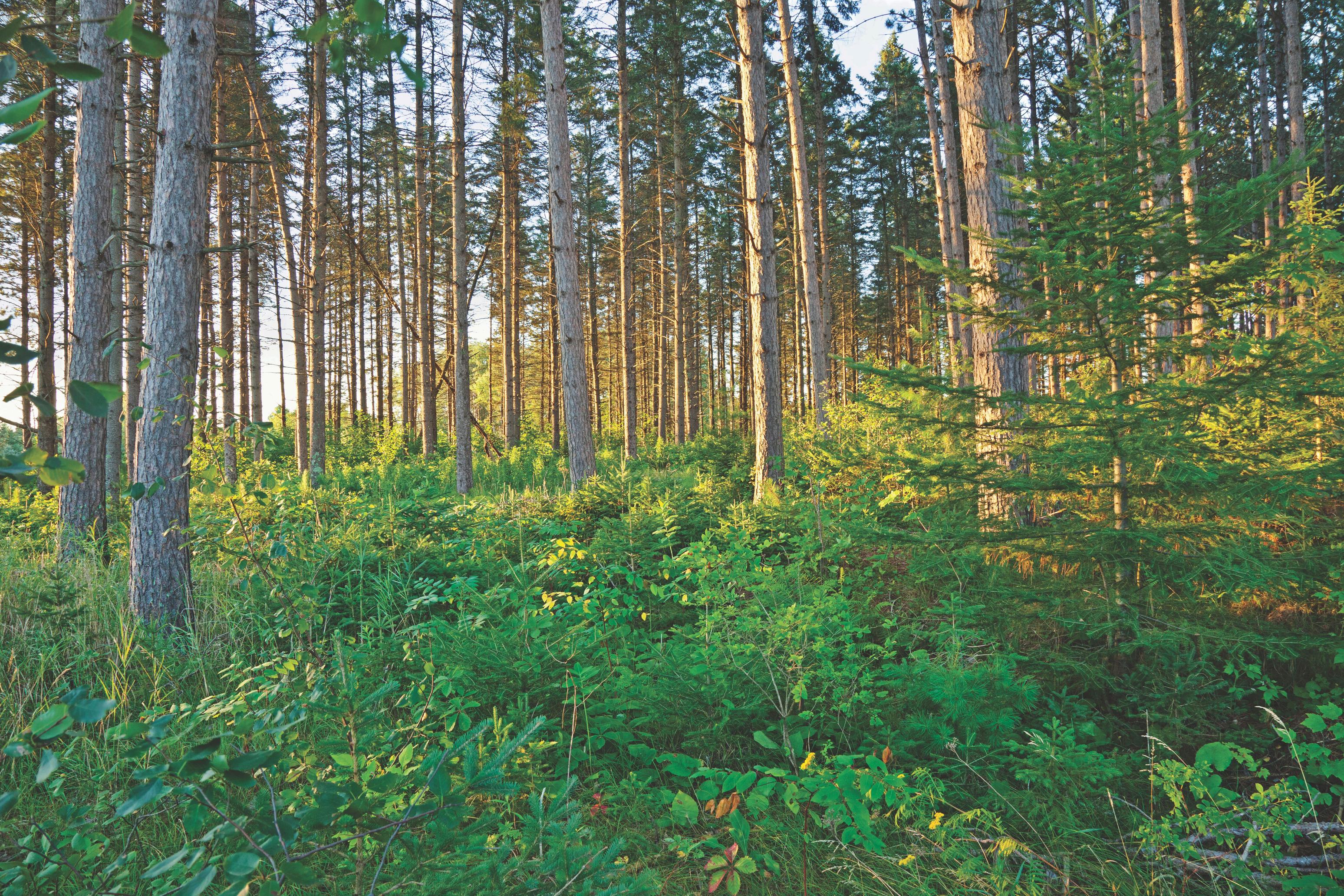
The mission of the Western Forestry & Conservation Association is to promote forest stewardship in western North America. We achieve this by:
Offering high-quality continuing education for natural resources professionals; Disseminating forestry research and technical information to those interested in the social, environmental and economic values of western forests; and Coordinating technical groups of federal, provincial and state governments, universities, forest-related industries, and others involved in forest resources

Founded in 1909 by forest managers and researchers in the U.S. Pacific Northwest, WFCA member companies and partner organizations are now located throughout the world.
WFCA coordinates events ranging from half-day group meetings to week-long field trips and conferences on the science and practice of forest management
These events are often co-sponsored with partner organizations and/or funded through cooperative research and education grants.
ACenturyof ForwardThinking
Celebrating 115 years
of Educating Foresters & Natural Resources Professionals
2024 is a special year, marking the 115th anniversary of the Western Forestry & Conservation Association. Our association was founded at a very different time — when the idea of forestry was in its infancy. In the early 1900s, national forests and the U.S. Forest Service had just been established. The vast stands of old growth stretching across the Pacific Northwest were seen as unlimited resources Ahead of the curve, we were founded to help conserve and protect forests and their resources
Our Fiery Beginning
Initially, the Western Forestry & Conservation Association dealt with forest fires The year after its founding, 1910, was marked by a punishing set of wildfires that burnt over three million acres of the Pacific Northwest. Our association informed schools, state officials, local associations, clubs, railroads and civic groups about fire protection while also supplying newspapers with bulletins and news
However, our fledging group soon began tackling other major issues like reforestation, lumber, tax revision, insect control, sustainable yields and insurance Complete with annual meetings, it evolved into an information hub across the western U.S. and Canada for state forest boards, conservation groups, the Forest Service, private owners and associations.
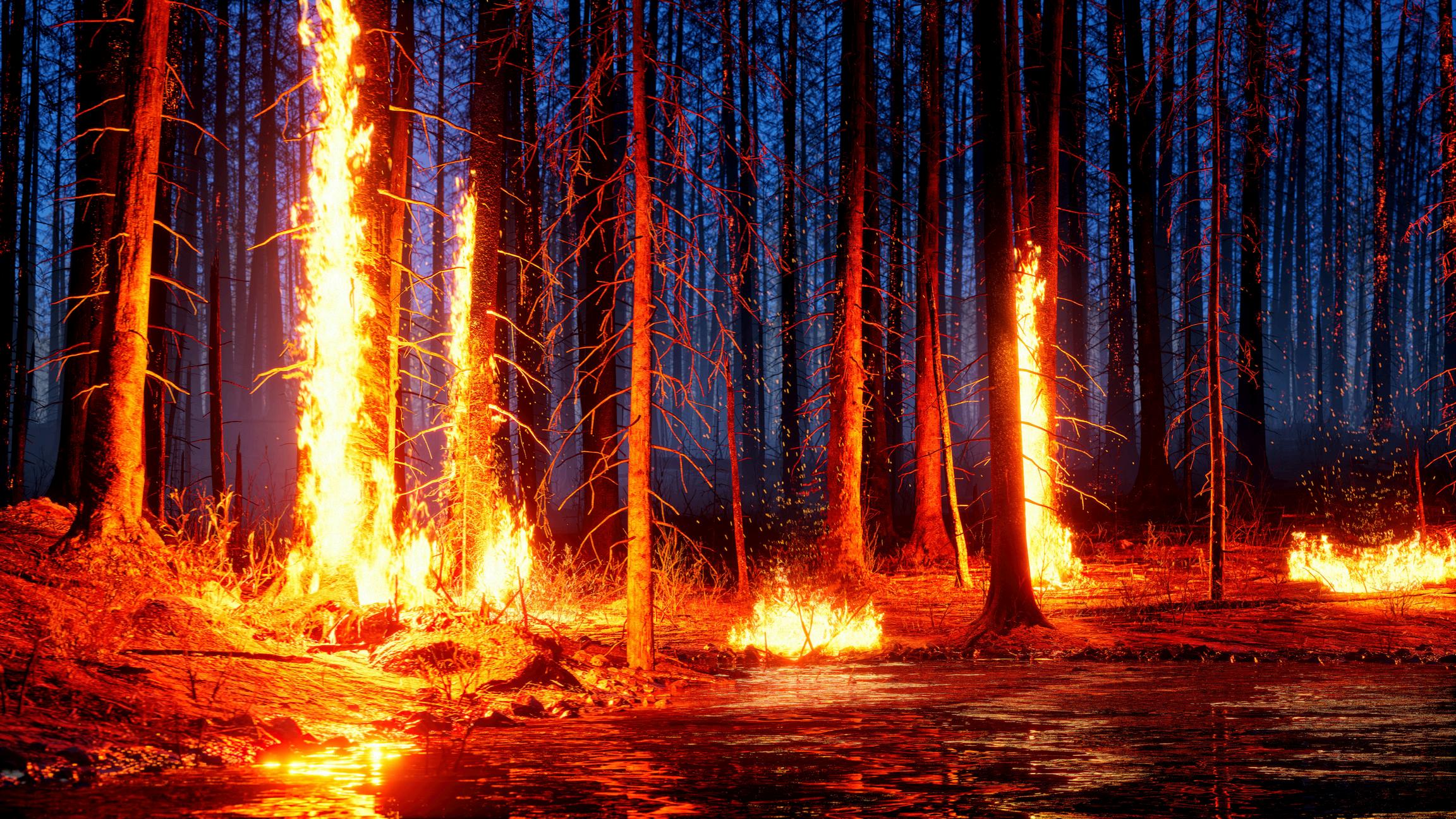
In the 1940s, our association turned its attention to sustained yields, training and longterm forest growth. In the first few decades of our history, we also had a hand in passing major legislation such as the Sustained Forestry Yield Management Act Another was the Clarke-McNary Act, which made it easier for the Forest Service to purchase land, and expanded protections for fire and water resources

Where We Are Today
Over the years, we have offered continuing education, shared forestry research, and managed conferences and events Here’s to another century of forestry work!
John L Aram Clarence Richen Richard Zabel E. T. Allen H. J. Hodgins W. Gerald Burch Nicole Jacobsen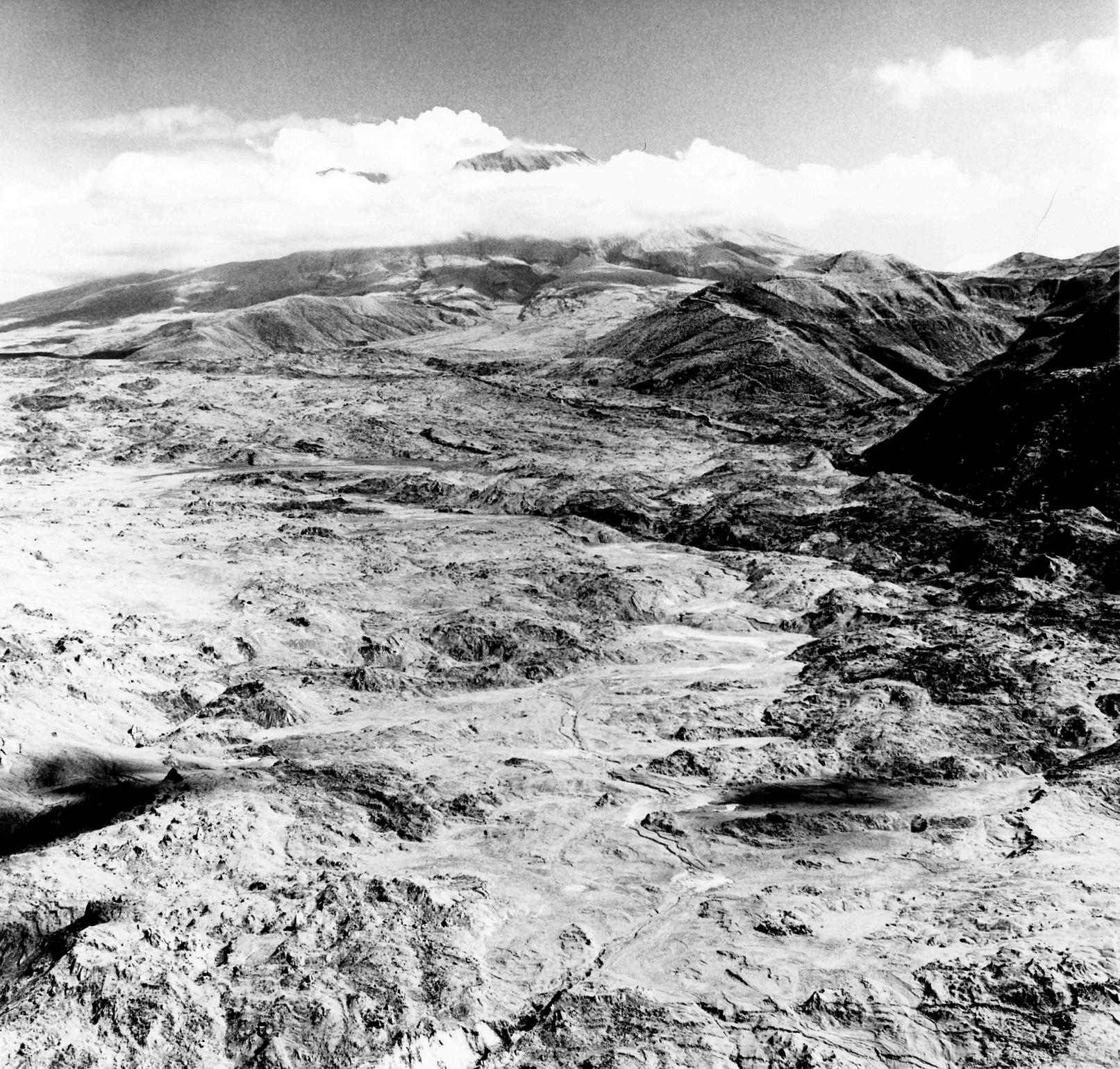
WFCATimeline
1900 1902
George S. Long is appointed General Manager of the Weyerhauser Timber Company

The Encyclopedia Britannica lists forestry as an entry

1909
George S. Long founds the Western Forestry & Conservation Association.
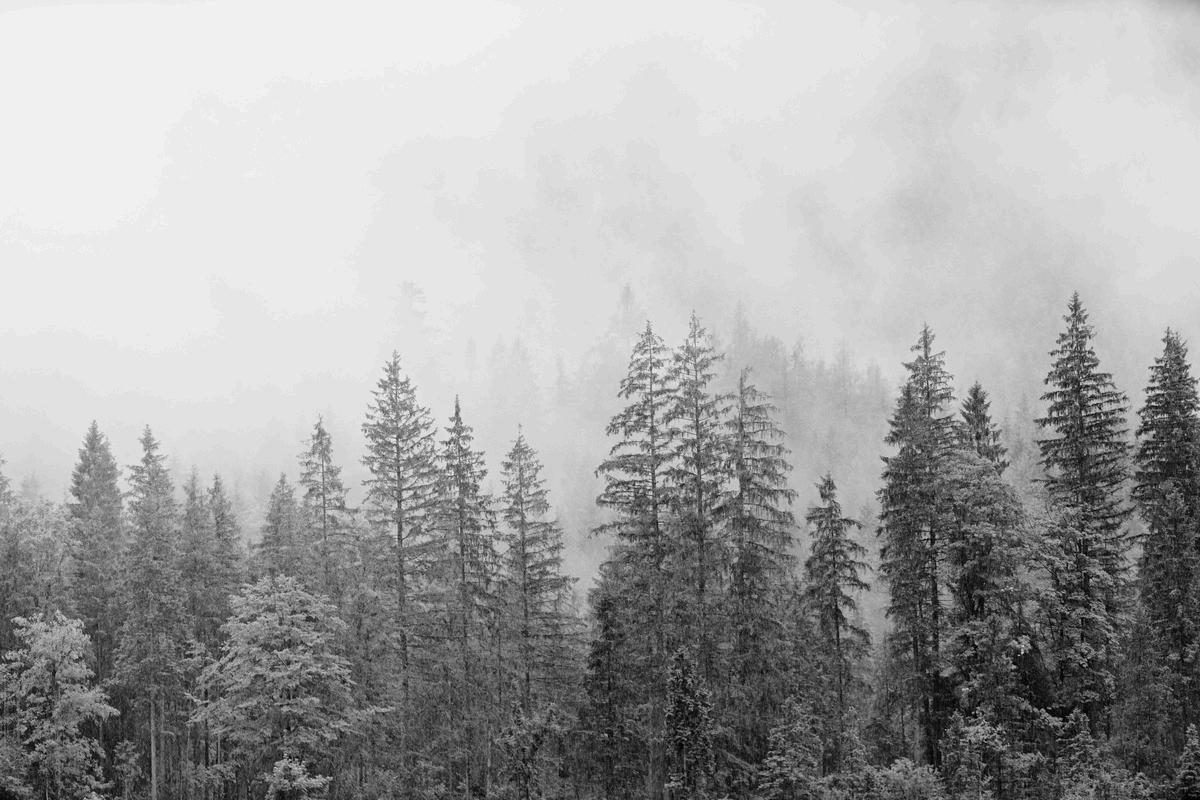
1910
1911
At WFCA’s request, President Taft orders troops to fight fires in the Pacific Northwest.

WFCA publishes a popular textbook on forestry & Congress passes the Weeks Act

1919
WFCA launches the Forest Patrolman, a bulletin that runs monthly until 1927

1921
1924
WFCA starts to study the land taxation system and timber insurance for forestry.

The Clarke-McNary Act is passed due to efforts of WFCA and the U S Forest Service

1947

1955
The U.S. Forest Service launches its Smokey Bear advertising campaign to prevent wildfires
The Sustained Yield Forestry Management Act is passed largely due to WFCA’s efforts
WFCA starts sponsoring an essay contest for juniors and seniors at western forestry universities
1970
WFCA aids with the establishment of the American Forest Research Council 1944 1944 1980


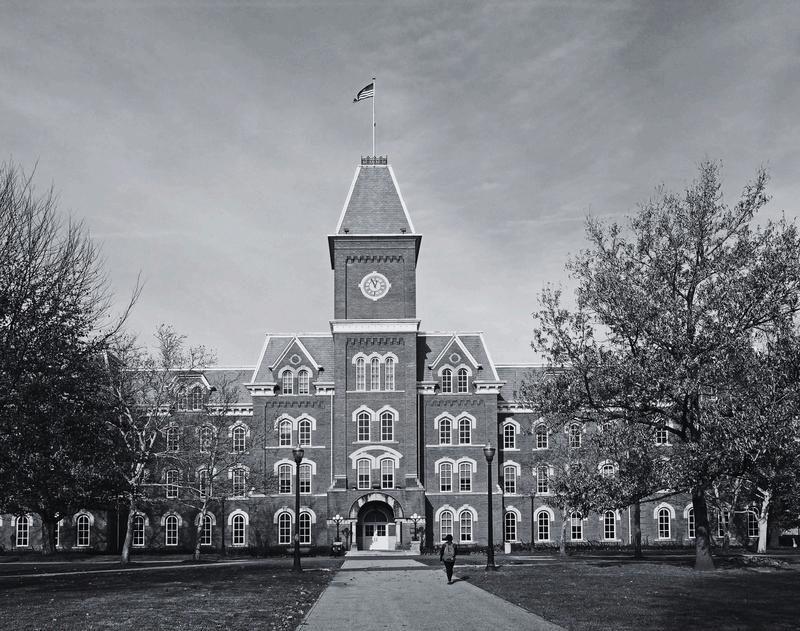
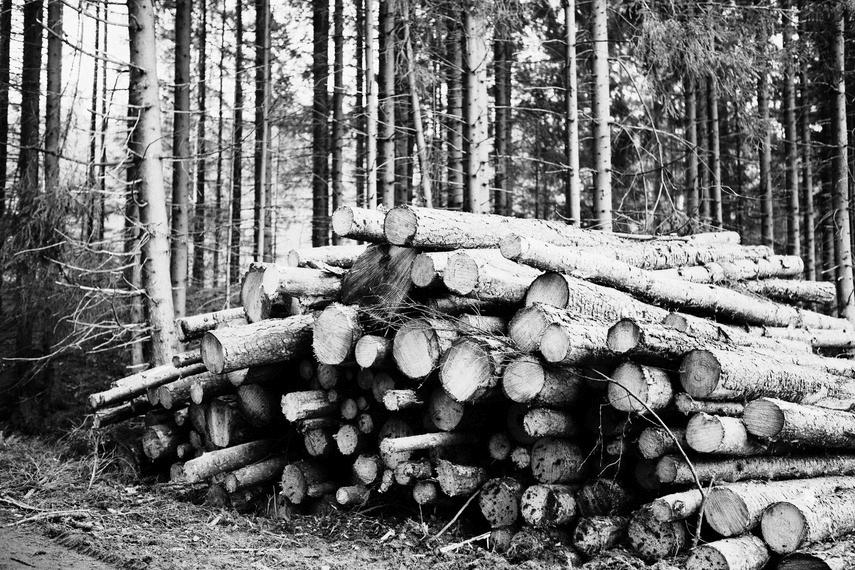
The first Earth Day is celebrated to raise awareness of pollution and toxic waste
Mount St. Helens erupts, causing over $3 billion in damages.


1997
The Kyoto Protocol is signed by countries agreeing to reduce their greenhouse gas emissions.


AnnualEvents

January
CouncilofForestEngineers(COFE)Meeting
Aone-dayannualmeetingwithpresentations,studentawards,andCFEcredits OrganizedfortheWesternRegionoftheCouncilofForestEngineers
HeldthesecondweekofJanuaryinLebanon,OR
MappingtheCourse
Aone-dayconferencefocusedonforestry,themarketoutlookforforestproducts,and relevantscienceandpolicyupdates
Meantforfinancialmanagersandplanners,itoftenincludesanoptionalworkshop
HeldthethirdweekofJanuaryinVancouver,WA
February
WASFI®ImplementationCommitteeQuarterlyMeeting
Ahalf-daybusinessmeetingthatincludesinvitedspeakers.Thishybrid meetingincludesanoptionalworkshoportrainingstartingin2024. HeldthefirstWednesdayofFebruary;locationTBD
CableLogging/SkylineSafetyCourse
Aone-daycoursefocusedonsafetyonandaroundcablelogging operations
Meantforfieldstaff,itwillsoonincludeanin-fieldcomponent
HeldthelastweekofFebruary;locationchangesannually

Atwo-dayannualconferencewithinvitedpresentations,studentawards,andCFE credits
OrganizedinconjunctionwiththeInlandEmpireTreeImprovementCoop’sAnnual Meeting
HeldthesecondweekofMarchinCoeurd’Alene,ID
VariableProbabilityShortCourse
Along-standing(65+yearsrunning!)in-depthtrainingorganizedwithJimKiser andcollaborators
HeldatOSUduringspringbreak
April
OperationalLidar&Inventory(OLI)
Aone-dayconferencewithinvitedpresentations,hybrid/livestreaming, andgroupdiscussions
OrganizedinconjunctionwiththeGrowthModelUserGroup(seebelow) inVancouver,WA
GrowthModelUserGroup(GMUG)
Aone-dayconferencewithinvitedpresentations,hybrid/livestreaming, andgroupdiscussions
May-August
WA SFI® Implementation Committee
Quarterly Meeting
A half-day business meeting that includes invited speakers This hybrid meeting will include an optional in-field component starting in 2024
Held the first Wednesday of June; location TBD
Forest Pathology Workshop
A long-standing, in-depth training organized by the USFS and collaborators
Held in the Hood River area in June
Forest Nursery & Seed Orchard Conferences
Regional annual conferences focused on forest nursery topics held in various locations across the country, usually during summer
Organized in conjunction with the USFS Reforestation, Nurseries, and Genetics Resources program, the Intertribal Nursery Group, and regional seed orchard managers
Regional Mensurationists & Forest Economists Meetings
Annual meetings of the various regional chapters held throughout the country
Organized with the regional chapters and groups of mensurationists and forest economists


FallTopicalTrainings
InventoryMethods RegulationUpdates Scaling
RoadSurfacing SteepSlopes
Others,asinstructorsareavailable Contactnicole@westernforestry.org withsuggestions!
September
ScalingForNon-Scalers
Aone-daymeetingonthescalingprocess withCFEcredits HeldthesecondweekofSeptemberin Wilsonville,OR
October
WASFI®ImplementationCommittee QuarterlyMeeting
Ahalf-daybusinessmeetingthatincludes invitedspeakers
Thishybridmeetingwillincludeanoptional workshopcomponentstartingin2024. HeldthefirstWednesdayofOctober; locationTBD
December
PNWVegetationManagementConference
Atwo-dayconferencethatincludesinvited speakersonarangeofforestand vegetationmanagementtopics
Offeredforapprovedpesticideapplicator recertificationcreditsinWA,OR,andID HeldthefirstfullweekofDecemberin Wilsonville,OR

WFCA SPECIALIZES IN PROFESSIONAL WORKSHOP LOGISTICS
Have a large and/or complex meeting you ’ re dreading planning? Below are just a few of the ways WFCA can help:
Registration & Marketing
Work with WFCA to create a seamless registration process for your event, including online and hard-copy payment processing and email marketing to your group, our group, or both
Vendor Coordination
Lodging and meeting room booking and payment, event food and drink coordination, and on-site assistance as a vendor liaison are all part of the WFCA event management package
Financial Management
WFCA manages incoming and outgoing money and provides a detailed budget for each event If desired, WFCA can also hold carryover revenue for annual events
Online Resources
Livestreaming makes your event accessible Group and event website management and online course posting are add-ons

FirstBilingualEdition
The Western Forester
¡Noticias! Last fall, the Society of American Foresters Northwest Office's quarterly newsletter, the Western Forester, was made available in both English and Spanish. WFCA partnered with the Society of American Foresters to launch this first bilingual edition
With an audience of over 2,000 members already, the Spanish version of the newsletter was aimed at the Latinx forestry workforce and their families This edition focused on workforce development, which both organizations felt should address the needs of both job seekers and employers. The goal was to encourage potential employees to consider careers in forestry.
Scan QR to read the Western Forester

The Western Forester is made possible by Alaska, Oregon, and Washington Society of American Foresters members' dues and through advertising support. Talks are currently underway about continuing bilingual issues of the newsletter.
Editor of the Western Forester
Andrea Watts is a freelance science writer based in western Washington. Having grown up surrounded by trees, it was only natural that she write about forestry. Andrea has undergraduate degrees in both English and environmental science with a focus on forestry, as well as a master's degree in silviculture & science communication

In addition to editing the Western Forester, she writes for the USDA Forest Service Pacific Northwest Research Station and Rocky Mountain Research Station
InlandEmpireTree ImprovementCooperative
The Inland Empire Tree Improvement Cooperative (IETIC) is a collection of 19 groups across Washington, Idaho and Montana This assembly of federal and state agencies, Native American tribes, the forestry industry and local universities aims to produce genetically improved conifer seeds for healthy and productive forests.
In the 1960s, foresters recognized the potential for genetically improving conifers native to the Inland Empire The first meeting to plan for the coop was held in 1965, and the organization was officially founded in 1968.
Currently based out of the University of Idaho, their work focuses on five species: ponderosa pine, western white pine, western larch, Douglas-fir, and lodgepole pine.
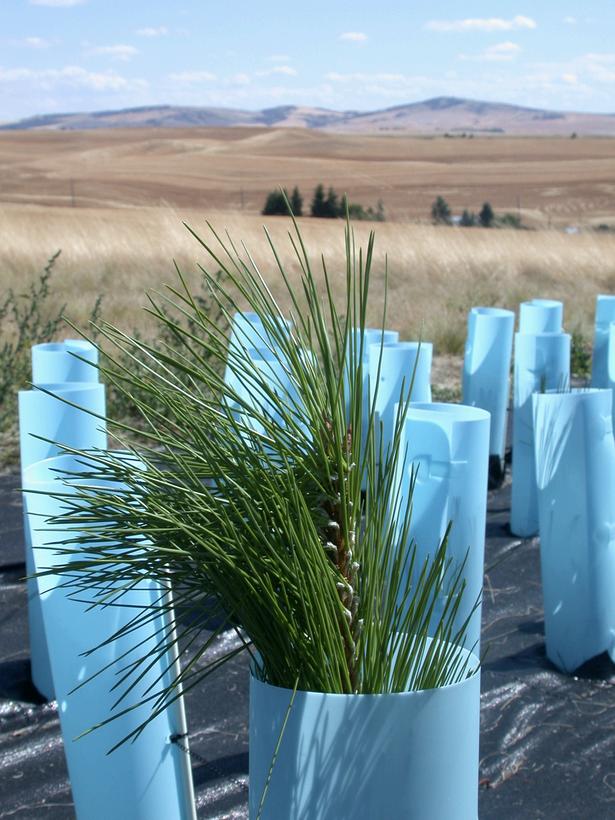
Other accomplishments include:
Creating a large pedigreed gene pool with scientific value
Learning how to better manage land for timber production
Using traditional breeding methods,
Developing operational guidelines for seed transfer within the Inland Empire
Identifying proper techniques for cone collection, seed extraction, seed handling, seedling growing, seedling handling, and seedling planting
Providing access to genetic material for establishing seed and breeding orchards
Providing genetically improved western white pine and ponderosa pine seed for reforestation projects
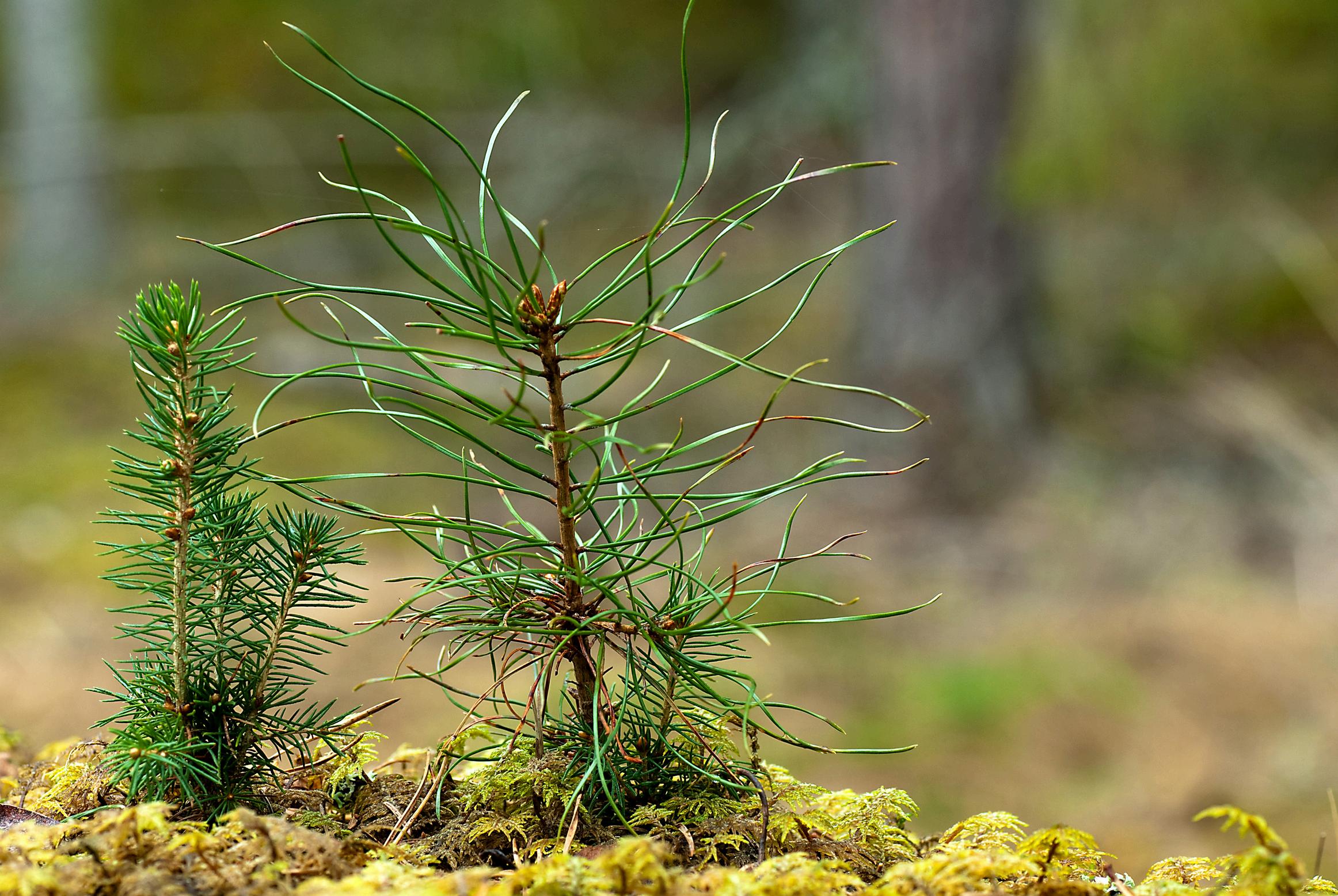
HelpingForestsWalk
What is Assisted Migration?
Assisted migration is gaining headway as a viable forestry management option under global warming In general, assisted migration is when people move plants or animals in response to climate change. In particular:
Assisted population migration refers to moving seed sources to new locations within a species range
Assisted species migration is moving species far outside their historical range, which is considered more risky
Why is it necessary?
The rapid pace of climate change can overwhelm a tree’s ability to adapt or migrate to a more suitable habitat Some species are already shifting their distributions, but conditions are changing 2 to 100 times faster than trees can naturally migrate For instance, by 2080, Washington’s annual average temperature is predicted to increase by ~5 to 10 °F
What are the benefits of assisted migration?
Assisted migration may maintain forest productivity while providing benefits like carbon uptake and wildlife habitat. Moving tree species to many locations can mitigate climate change risks and help save threatened species
The Seedlot Selection Tool helps plan for climate change during reforestation projects, while the USDA Northwest Climate Hub provides climate resilient reforestation guidelines
What are some of the challenges?
Pests or insects could be accidentally introduced to new areas.
Assisted migration may be more costly than traditional regeneration methods, especially natural regeneration. Newly introduced species could become invasive or hybridize with native species
Assisted Population Migration in the Northwest
Researchers and land managers have established a new experimental network of over 30 sites, The Experimental Network for Assisted Migration and Establishment Silviculture
Spanning a range of forested ownerships in Washington, Oregon and California, this network evaluates the success of assisted population migration treatments. A main objective is to sustain forests by understanding where, what and how to plant.
It uses seed sources adapted to historical, early-, mid- and late-century climate projections.
The network is also testing the effects of different silvicultural practices on reforestation success, including planting density, stock type and vegetation control
EmphasisonOutreach
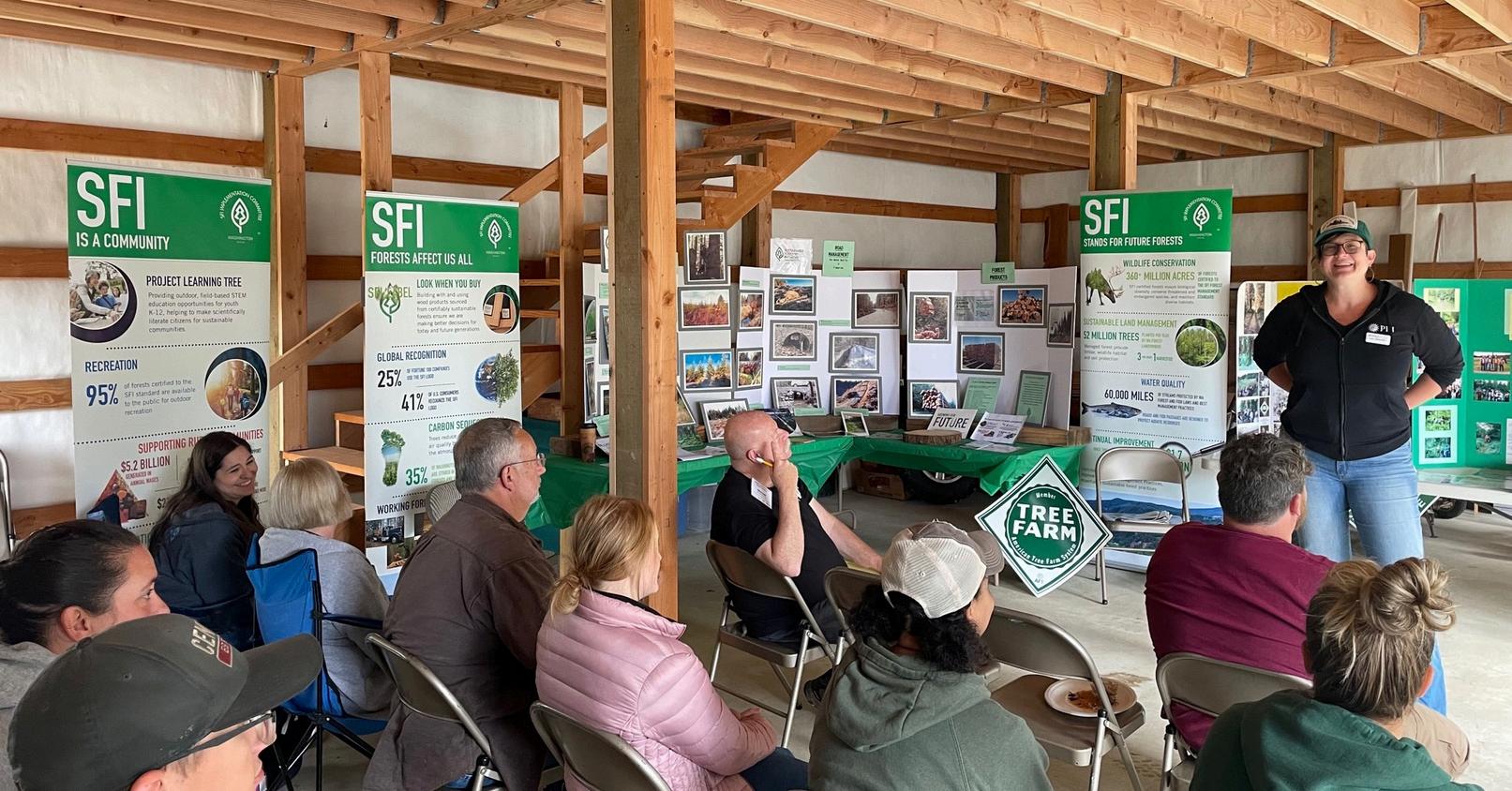
Forestry and its related sectors offer local family-wage jobs with great benefits and room to move throughoutthecareerlattice Manyofusgettoworkoutside,engagewithtreesandwildlifeonaregular basis,andknowthatourworkwithmanagedforestsiscontributingtoclimatesolutions.
Sowhyaren’tmoreyoungpeopledrawntothiswork?
Whetherduetoantiquatedideasofwhatforestryandloggingareoranurbanizedpopulationthatlacks accessandawarenesstoopportunitiesinnaturalresources,thegeneralpublicseemstohavealackof enthusiasmforforestry Thebestwaytoovercomethisisthroughoutreach.
WFCAiscommittedtobeingahubofknowledgeandresourcesforforestryprofessionalsinthewestern region this is true when it comes to outreach, too! Many organizations and small business lack the capacity to do strategic outreach, so we ’ ve put together a section to support your in-person or online communicationefforts.
Need help coming up with dynamic messaging to overcome decades of anti-forestry sentiment? Sign up to be an organizational supporter of #forestproud and gain access to their innovativeandengagingcontentlibrary
Want to do social media, but running out of ideas? Choose from one of our compiled awareness holidaysandhighlighthowmanagedforestscleantheair,supportwildlife,createenergyindependence andreducewildfirerisk.
Goingtoacollege&careerfair?Manyyoungpeoplemaybeinterestedinforestry,butaren’tsurethe right path to take We’ve put together a list of 2-year and 4 -year programs in the western region focusedonforestry,wildlandfireandnaturalresources.
P A G E 1 0

MANAGED
FORESTS ARE THE SOLUTION
Communicating Together
We all know the myriad benefits that managed forests provide for our economy and the environment. The problem is the general public doesn’t That’s where #forestproudcomesin
#forestproud is a “cutting-edge brand, program, and community committed to stewarding and championing forest climate solutions” This communications platform, now housed under SAF, unites all sectors of theforestryindustry withacommonexternal message.Forestmanagementisthesolution the solution to a green economy, the solution to healthy communities, the solution to robust wildlife, and the solution to wildfire reduction
That’swhy,asof2024,WFCAisproudtosign on as an organizational supporter of #forestproud.Thisplatformwillbeadynamic tool to engage with the next generation as we work to cultivate future forestry professionals

P A G E 1 0
Communications Calendar

Need ideas for engaging the public about forestry, workforce development, or environmental benefits of managed forests in 2024?
January
InternationalQualityofLifeMonth NationalMentoringMonth
Jan05-Nat'l BirdDay
Jan09-IamaMentorDay
Jan10-Nat'l CutYourEnergyCostsDay
Jan17-Int'l.MentoringDay
Jan20-TakeAWalkOutdoorsDay
Jan24-U.N.Int'l.DayofEducation
Jan26-WorldEnvironmentalEducationDay
Jan26-U.N.Int'l.DayofCleanEnergy
Jan28-Int'l.ReducingCO2EmissionsDay
February
YouthLeadershipMonth CareerandTechnicalEducationMonth
Feb01-USForestService’sbirthday
Feb02-WorldWetlandsDay
Feb11-Nat'l Inventors'Day
Feb11-Int'l DayofWomen&GirlsinScience
Feb16-19*-GlobalBirdCount
Feb18-24-EngineersWeek
Feb22-IntroduceaGirltoEngineeringDay
Feb22-Nat’l WildlifeDay
Feb26-Mar03-InvasiveSpeciesAwarenessWeek
March
ExpandingGirls’HorizonsinScienceand EngineeringMonth
Mar03-UN WorldWildlifeDay
Mar04-WorldEngineeringDayforSustainable Development
Mar10-16-GroundwaterAwarenessWeek
Mar17-23-NationalSurveyorsWeek
Mar21-UN Int'l DayofForests
Mar21-GlobalSurveyorsDay
Mar22-UN WorldWaterDay
April
Citizen Science Month
Children and Nature Awareness Month
National Internship Awareness Month
National Supply Chain Integrity Month
Apr 01-07* - Arbor week (OR)
Apr 08 - All Is Ours Day
Apr 10 - Arbor Day (WA)
Apr 08-14 - Canadian National Wildlife Week
Apr 08-15* - Int'l Dark Sky Week
Apr 13 - Int'l. Plant Appreciation Day
Apr 21-27* - Nat'l Environmental Education Week
Apr 22 - Earth Day
April 26 - Audubon Day
April 26* - Arbor Day
Apr 28 - May 05 - Stewardship Week
May Clean Air Month
Wildfire Awareness Month
American Wetlands Month
May 4 - Wildfire Community Preparedness Day
May 05-11* - Public Service Recognition Week
May 11 - World Migratory Bird Day
May 17* - Nat'l. Endangered Species Day
May 22 - Int'l Day for Biological Diversity
June
Great Outdoors Month
National Rivers Month
National Camping Month
June 1 - Nat'l Trails Day
June 5 - World Environment Day
June 3-9 - Canadian Environment Week
June 08* - National Get Outdoors Day
June 15 - Nature Photography Day
Jun 21 - Indigenous People's Day (Canada)


July
Wild About Wildlife Month Park and Recreation Month
Jun 30 - Jul 06 - Wildland Firefighter Week of Remembrance
Jul 02 - National Wildland Firefighter Day
Jul 06* - Hop-A-Park Day
Jul 10 - Global Energy Independence Day
Jul 10-16* - Nat’l Forest Week
Jul 12 - Paper Bag Day
Jul 15 - World Youth Skills Day
Jul 28 - World Nature Conservation Day
August
Tree Check Month
National Parks Month
National Water Quality Month
Aug 9 - Day of the World's Indigenous Peoples
Aug 12 - Int'l Youth Day
September
National Wilderness Month
Workforce Development Month
Sep 4 - Nat’l. Wildlife Day
Sep 7 - World Tourism Day
Sep 7 - Int’l Day of Clean Air for Blue Skies
Sep 15-21 - Truck Driver Appreciation Week
Sep 22 - World Rivers Day
Sep 28 - National Public Lands Day
*dates change year to year
October
Raptor Month
Energy Awareness Month
National Field Trip Month
Oct 4 - Manufacturing Day
Oct 3 - World Animal Day
Oct 9 - World Post Day
Oct 11 - Int'l Day of the Girl
Oct 13 - Int’l Day of Disaster Risk Reduction
Oct 13-19 - Earth Science Week
Oct 14 - Indigenous Peoples' Day
Oct 14 - World Migratory Bird Day
Oct 15 - Int'l Day of Rural Women
Oct 24 - Int'l Day of Climate Action
November
World Recycling Month
Native American Heritage Month
Nov 8 - National STEM/STEAM Day
Nov 11-17* - Geographic Awareness Week
Nov 15 - America Recycles Day
Nov 17 - Nat’l Hiking Day
Nov 19 - Nat’l Camp Day
Nov 29 - Native American Heritage Day
Nov 20* - GIS Day
December
Made In America Month
Dec 4 - Wildlife Conservation Day
Dec 5 - World Soil Day
Dec 11 - Int’l Mountain Day
Dec 14 - Jan 5 Audubon Christmas Bird Count
Dec 19 - Look for an Evergreen Day
Grow the Next Generation
4-year programs aren’t for everyone. Many young people are no longer interested in the time or financial investment of a 4-year degree, at least not right out of high school. Fortunately, the Northwest offers many certificate and 2-year programs that provide a technical education perfect for beginning a career in forestry or natural resources management Highlight some of these programs at your next outreach event
Oregon
Central Oregon Community College
Certificate/AAS, Forest Resources Technology*
Certificate/AAS, GIS
Clackamas Community College
Certificate, Wildland Fire Forestry
AAS, Wildland Fire Management
Certificate, GIS
Mt. Hood Community College
AAS, Natural Resources Technology: Forest Resources*
Portland Community College
Certificate/AAS, Geomatics
Southwestern Oregon Community College
AS, Forest Engineering
AS, Forest Management
AS, Forest Management/Forest Restoration and Fire
AS, Forest Management/Operations Management
AS, Natural Resources
AS, Wood Innovation for Sustainability: Science & Engineering
Tillamook Bay Community College
AS, Forestry
AS, Natural Resources
Treasure Valley Community College
AAS/AS, Natural Resources
AAS, Wildland Fire Management
Umpqua Community College
AS, Forestry
AS, Forest Restoration & Fire
AS, Forest Engineering
Washington
Bates Technical College
Certificate of training, Wildland Firefighter II
Clark College
AAS, Surveying/Geomatics
Clover Park Technical College
AAS-T, Environmental Sciences & Technology
Everett Community College
Certificate of training, Wildland Firefighter II
Grays Harbor College
Certificate/AAS, Natural Resources/Forestry Technician
Green River College
AAS, Natural Resources - Forestry*
AAS, Natural Resources - GIS
AAS, Natural Resources - Wildland Fire
Peninsula College
Certificate/AAS-T, Natural Resources
Spokane Community College
AAS, Natural Resource Management
Certificate, Natural Resources Technologies in Geographic Information Systems
Certificate/AAS, Arboriculture/Urban Forestry
Walla Walla Community College
AAS-T, Watershed Management - Forestry
Wenatchee Valley College
AAS-T, Natural Resources
*Degree is SAF Accredited
Interested in more?
Request our outreach packet for an extensive list of all relevant wood supply chain post-secondary programs in Alaska, Idaho, Oregon, Montana, Washington, and British Columbia.
